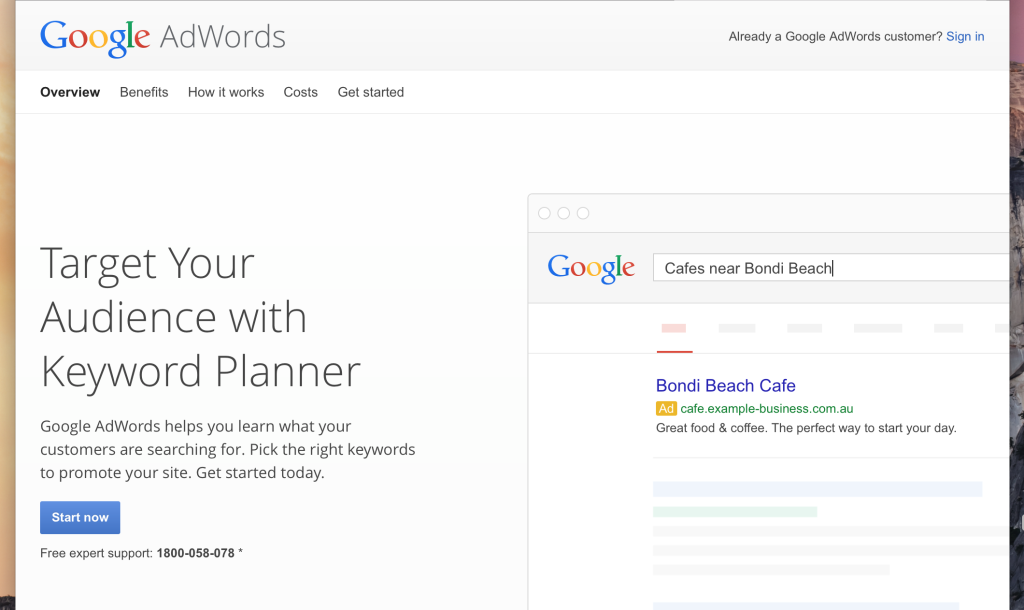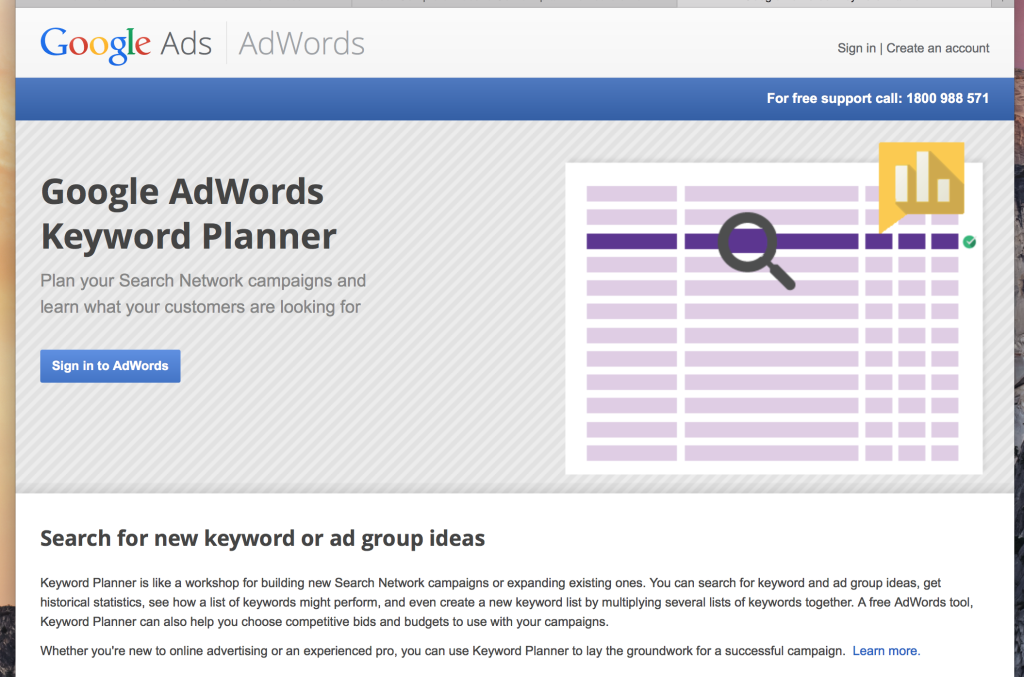Before writing your website content, it’s a good idea to learn about Google Keywords, and determine which apply to your business niche and your website.
What are Google Keywords? Keywords are the words and the phrases that are commonly used by people who are searching for your particular service on Google. This post is about is how you find out what your Google Keywords are, and how to use them.
Keywords are one aspect of Search Engine Optimisation (SEO), which help your website appear higher in the search rankings. You will also need to know what Keywords are relevant to your niche because these are precisely the same words and phrases you will be “buying” when you utilise Google Adwords (Google’s paid advertising service).
Firstly, you will need to create and sign on to an account with Google, and learn how to use its Keyword search function.
Use these links to Google’s tutorials on how to use the Keyword search function:
https://adwords.google.com/KeywordPlanner
https://support.google.com/adwords/answer/2999770?hl=en
Whilst you are there, also bookmark this tutorial on Google Adwords for future reference:
http://www.google.com.au/adwords/onlineclassroom/
Once you know what your Keywords and Keyphrases are, keep them in mind when writing your content. Use the words and phrases, where appropriate, within your text, within your headlines and on your picture captions.
However, beware of “keyword stuffing”. Google’s latest search algorithms actively penalise this phenomenon. Keyword stuffing occurs when people squeeze as many keywords and key phrases into a paragraph as possible, making for stilted, repetitive or nonsensical English text.
The best way to avoid this is to write in simple, clear and accurate English, whilst including your keywords where appropriate. Google’s search algorithms are looking for accurate informative free-flowing English text, as spoken by an English speaker to another English speaker. This is good news for you, because this is exactly the way you want to communicate with your clients on your website.
A Few Caveats on the Importance of Keywords
Earlier in this piece, we alluded to the fact that using Keywords within your text will assist in your search engine optimisation within Google. This is true, up to a point. However Google’s latest search algorithms do not give as much relevance to keywords anymore, but rather to the entire volume and relevance of information on your website. Google is now rewarding large, relevant and informative bodies of information, rather than simple keyword placement.
Secondly, be aware that search engine optimisation, whilst assisting you in climbing up the rankings, is going to be nowhere near as useful to you as the paid Google AdWords service. Accept the fact that Google is a media company, which is geared to get paid advertising from you. The quickest and simplest way to get near the top of your search page rankings is to pay for a Google AdWords placement. This payment (for each keyword) ensures that local Google searches to your niche will show your website at or near the top of the search results.
Thirdly, if you want to use SEO to climb up the search rankings, concentrate on the volume, relevance and timely updating of information on your website. This includes having a large amount of “authority text”, and also by including a blog page which is regularly updated with new relevant information to your clientele. In other words, doing exactly what we have been asking you to do when planning the goals, framework and content of your website.








